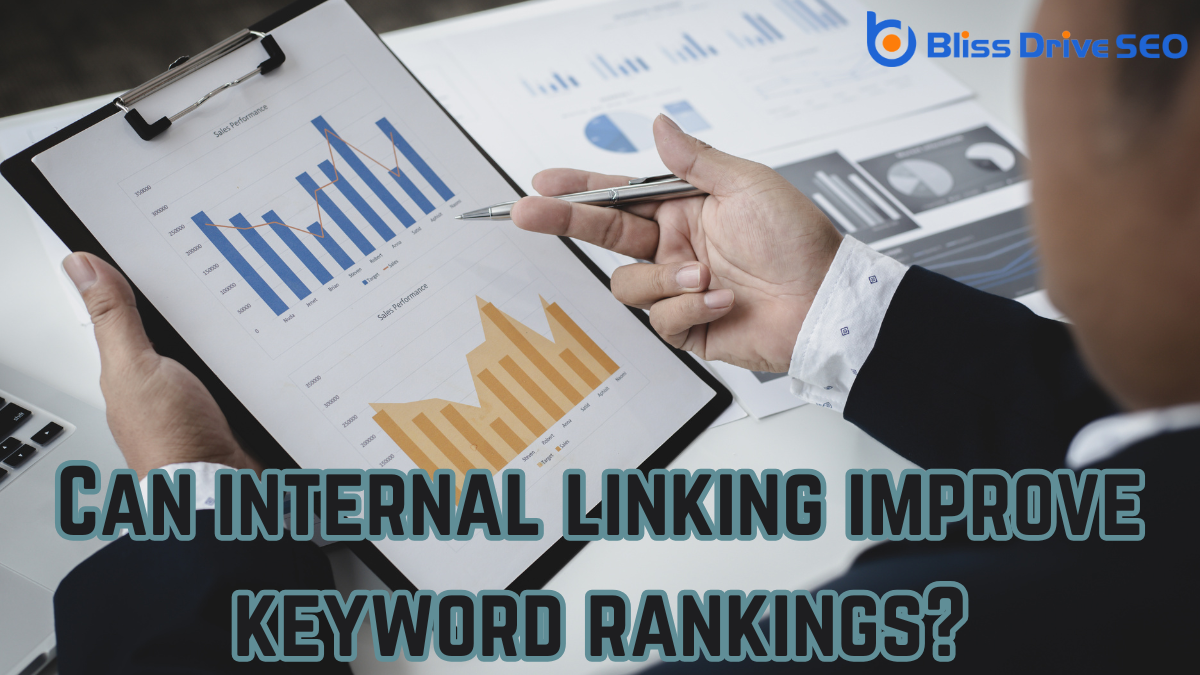Digital Marketing Services
Learn More About Us

You're likely wondering if internal linkingLinks that connect different pages on the same website. can really boost your keyword rankingsThe position at which a website appears in the SERP.. Well, it's a strategy that might be more powerful than you think. By strategically connecting related content on your site, you enhance its structure and visibility, making it easier for search engines to index your pages. This can leadA potential customer referred by an affiliate who has shown interest in the product or service but h... to improved rankings. But, there's more to this than just adding links. What are the secrets to doing it right? Let's find out.
When you explore internal linking, you quickly realize its vital role in enhancing website navigation and SEO. Internal links connect different pages within your website, guiding users and search engines through your content. By strategically placing these links, you can help visitors find relevant information more efficiently, improving their overall experience.
You'll notice that internal linking also distributes link equity across your site. This means pages that mightn't get much attention on their own can benefit from the authority of more popular pages.
It's important to use descriptive anchor text for these links, as it provides context to both users and search engines.
Incorporating a thoughtful internal linking strategy guarantees your site remains user-friendly and well-organized, making content discoveryFinding relevant content to share or draw inspiration from. seamless and intuitive.

Although internal linking is often overlooked, it plays a crucial role in boosting SEO and improving keyword rankings. When you create internal links, you help search engines understand your site's structure and hierarchy. This means they can index your pages more effectively, leading to better visibility in search results.
By strategically linking related content, you also distribute page authority throughout your site, which can enhance the ranking potential of individual pages.
Moreover, internal links improve user experience by guiding visitors to relevant content, which can increase the time they spend on your site. This user engagementThe interactions that users have with a brand’s content on social media. signals search engines that your site is valuable, further boosting your rankings.
To effectively implement internal links, it's essential to start by identifying related content across your site that naturally fits together. This strategy guarantees that users and search engines navigate your website seamlessly, enhancing user experience and improving keyword rankings.
Focus on linking relevant pages to provide additional value and context. Use descriptive anchor text to give users and search engines a clear understanding of the linked content. Maintain a logical structure that guides visitors through your content effortlessly.
To enhance your internal linking strategy:
While internal linking can greatly enhance your website's SEO, common mistakes can undermine these efforts. One major error is using irrelevant anchor text, which confuses search engines about your content's focus. Always choose descriptive, relevant words that reflect the target page's topic.
Another pitfall is overloading pages with links. Too many links can dilute the value and overwhelm users. Aim for quality over quantity.
Also, don't ignore orphan pages—those without any internal links. These pages are hard for search engines to find and index. Make sure every important page is linked to at least once.
Finally, avoid linking to broken or outdated content, as this frustrates users and signals poor maintenance. Regularly audit your links to keep them relevant and functional.

Understanding how internal linking affects your SEO strategy is essential for maximizing your website's performance.
To measure its impact, focus on key metrics and use tools designed for SEO analysis. You'll gain insights that highlight areas for improvement and discover the true potential of your links.
Here's what to monitor:
In short, internal linking is pivotal for boosting your keyword rankings. By effectively connecting your content, you help search engines understand your site's structure, enhancing your pages' visibility and authority. Remember to implement best practices and avoid common pitfalls to maximize your SEO strategy. Monitor your efforts to see how these links improve user engagement and signal value, ultimately driving better rankings. So, don't underestimate the power of well-planned internal links in your SEO arsenal.
